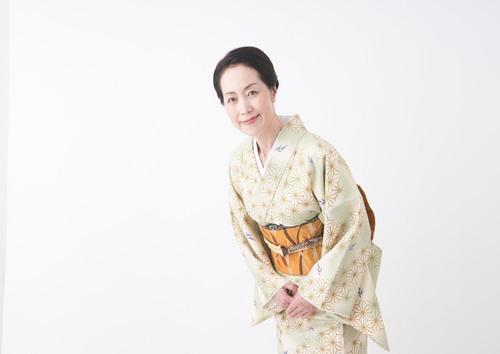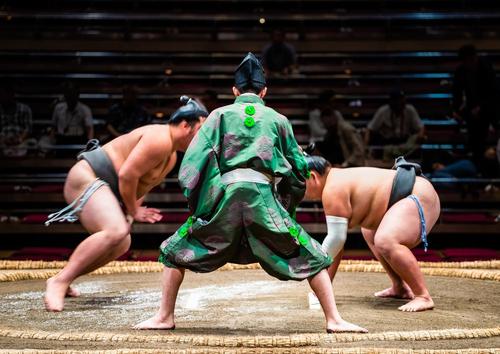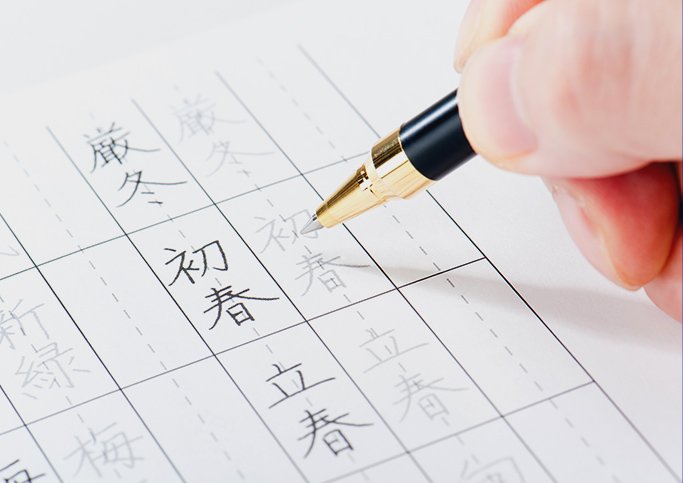
slang
(笑) / guguru / majide… Japanese Internet slang and teen words
6/25/2021
Internet slang and teen words in Japanese are one of the most difficult expressions for foreigners to learn because they are constantly being reborn and go out of fashion. Here, with the help of some example sentences, let's learn how to use Internet slang and teen words commonly used by Japanese people!
1. (笑)
“笑” is read as “wara.” It is a symbol that shows the smile in one letter. It started to be used in a way that people could easily communicate their feelings in the text at a time when the exchange of texts such as emails and SNS became frequent. “笑” is not used as spoken language, but is mainly used when typing sentences on a computer or smartphone. It is used at the end of a sentence as a symbol to share your feelings when you think something is funny and it is difficult to see the other person's expression. It is used in the same way as Emojis. “笑” may be used in the same way as “LOL” or “haha” in English. It's mostly used for close friends and family, but it's rude to use “笑” for people you've never met or are in a higher position.
Example
この動画はすごく面白いね(笑)
Kono dōga wa sugoku omoshiroi ne (wara)
This video is so funny! LOL
In addition to “笑,” “(爆笑)” and “www” are sometimes used. In “(爆笑),” the kanji character “爆” is added to express that the person is laughing harder than in “笑.”
Example
アレはないよね(爆笑)
Are wa nai yo ne (bakusyō)
That's not gonna happen. LMAO!
The “www” comes from the “w” at the beginning of the word “笑う” (warau), which means to laugh. The higher the number of “w,” the more likely you are to laugh.
Example
あなた昨日とても酔っていたよwww
Anata kinō totemo yotte ita yo www
You were very drunk yesterday! loool
Because “www” looks like a row of short grasses growing on the ground, young people nowadays sometimes use the kanji “草” (kusa) to convey something funny.
Example
それは草。
Sore wa kusa.
It is very funny.
2. (泣)
“(泣)” is read as “naki” and is used in the same way as “(笑)” (wara). By adding “(泣)” (naki) at the end of the sentence, it expresses something so sad that you want to cry. Young people these days sometimes use “ピエン” (pien), an onomatopoeic word to indicate that they are crying and sad. In English, it may mean “tears” or “:(“.
Example
日本語の略語の表現方法は私にとって難しい(泣)
Nihongo no ryakugo no hyōgen hōhō wa watashi ni totte muzukashī(naki)
How to express Japanese abbreviations is difficult for me. tears
Example
テストの勉強が間に合いそうにありません(´;ω;`)ピエン
Tesuto no benkyō ga maniai-sō ni arimasen.(´;ω;`)pien
I don't seem to be in time to study for the test.:(
* (´;ω;`) is an emoticon that expresses the state of crying.
Example
実はまだ明日提出の課題が終わってないの(泣)
Jitsu wa mada ashita teisyutu no kadai ga owatte naino(naki)
Actually, I haven't finished the assignment for submission tomorrow :(
3. ググる(guguru)
Searching by Google (gūguru) to find out is called “ググる” (guguru). This expression was created because people often use Google when searching for something on a smartphone in Japan. In addition, some young people use the word “Google先生” (gūguru sensei), which is a combination of “Google” and “sensei,” which means “a teacher.” “Google先生” (gūguru sensei) is a word born by personifying Google as “a teacher who knows everything.”
Example
これ分からないからググっておいて!
Kore wakaranai kara gugutte oite!
I don't know this, so google it!
Example
グーグル先生に頼ろう!
Gūguru sensei ni tayorou!
Let's rely on Google teacher!
[日本のことが気になる?一緒に日本語を学びませんか?]
4. マジで(majide)
“マジで” (majide) means “really.” “マジで” (majide) is often used to express surprise at what the other person says, so it's useful to remember it.
Example
マジで面白い!
Majide omoshiroi!
Really funny!
Example
マジで?
Majide?
Seriously?
Example
A:実は第一志望の大学に合格したんだ!
B:マジで!?良かったじゃん!
A: Jitsuwa daiichishibō no daigaku ni gōkaku shita nda!
B: Majide! ? Yokattajan!
A: By the way, I passed the university of my first choice!
B: Did you!? That's great!
5. ちな(china)
The word “ちな” (china) is an abbreviation of “ちなみに” (chinamini) which means “by the way.” “ちな” (china) is an expression used in close relationships. If you are in a place where you have to be careful with your words, such as at work, use “ちなみに” (chinamini).
Example
定期テストの数学96点だった!ちな、理科は12点。
Teiki tesuto no sūgaku 96-tendatta! China, rika wa 12-ten.
I got a 96 in math on my regular test! BTW, I scored 12 in science.
Example
ちな、この筆箱は原宿で買ったの。
China, kono fudebako wa Harajuku de katta no.
BTW, I bought this pencil case in Harajuku.
6. とりま(torima)
The word “とりま” (torima) is an abbreviation of “とりあえず、まぁ” (toriaezu, mā) which means “anyway.” When used at the beginning of a sentence, it means “anyway.” This expression should also be used in close relationships.
Example
とりま、予約しておいたよ!
Torima, yoyaku shite oita yo!
Anyway, I made a reservation!
Example
とりま、課題終わらせておくわ!
Torima, kadai owarasete oku wa!
Anyway, I'll finish my task!
7. パリピ(paripi)
The word “パリピ” (paripi) is derived from the English word “party people.” The English word “party people” means “people who like to party,” but in Japan, “パリピ” (paripi) is often used to describe young people having fun and making noise. The word can also be used in a negative sense, as in “a person who makes a lot of noise and causes trouble for others.”
Example(否定的な意味)
アイツ、パリピかよ
Aitsu, paripi ka yo
That party animal is annoying.
Example(肯定的な意味)
たまにはパリピになっちゃおうか!
Tamani wa paripi ni natchaō ka! !
Let’s get crazy like party people for a change!!
8. おk(oke)
The word “おk” (oke) comes from the English word “OK,” which means “I understand.” It is said to have come into widespread use because it saves time to type “おk” (oke) instead of “OK” while switching between Japanese and English on the keyboard, and because it sounds the same as “OK” and can be understood by the other person.
Example
おkおk
Oke, oke
OK, OK
Example
A:これやっておいてくれない?
B:おk、おk
A:kore yatteoite kurenai?
B:oke, oke
A: Can you do this?
B: OK, OK
There are a lot of Internet slang and teen words in Japanese. In passing, the slang words “それな” (sorena) and “リア充” (riajū) are often used, but do you know what they mean? If you are interested in the Japanese language, why don't you sign up for a free membership to Human Academy Japanese Language School Plus. You can experience practical Japanese lessons by experienced teachers for free.
CATEGORIES
FEATURED TAGS
RECOMMENDATION
-
 報BUSINESS TERMS
報BUSINESS TERMSWhat is ”Ho-Ren-So”, one of the basic manners when working in Japan?
10/30/2020
-
 伝WORDS & GRAMMAR
伝WORDS & GRAMMARWhat is easy Japanese?
10/30/2020
-
 礼MANNERS
礼MANNERSJapanese greeting customs and origins. What are the greetings from other countries?
10/30/2020
-
 戯COMIC & GAME
戯COMIC & GAMEThe roots of animation and manga? Introducing bird and beast caricatures
10/30/2020
-
 戦SPORTS
戦SPORTSThe history of sumo goes back to the mythical world! ?? Transition from myth to modern times
10/30/2020
LET’S PLAY
KARUTA!
Do you know the meaning of this...
NEXT...
FURTHER EXPLORATION
INTERESTED
IN JAPAN?
WHY DON’T YOU
LEARN JAPANESE WITH US?
START LEARNING
JAPANESE
WITH HUMAN ACADEMY!
ONE OF
THE MOST POPULAR
JAPANESE
LANGUAGE SCHOOLS
JAPANESE
LANGUAGE SCHOOL
OFFERING EXCELLENT
DETAILED LESSONS

ONLINE SCHOOL
- Learn with your classmates from all over the world
- Variety of Courses for All Needs
- FREE Trial Lesson available

TOKYO, OSAKA
- Offer the Best Curriculum for You
- Make New Japanese Learning Friends
- Many Opportunities to Practice Japanese
MAKE FURTHER
STEPS
WITH HUMAN ACADEMY!
ONE OF
THE MOST POPULAR
JAPANESE
LANGUAGE SCHOOLS
JAPANESE
LANGUAGE SCHOOL
PRODUCING MANY
JLPT N1 CERTIFIED
STUDENTS!

ONLINE SCHOOL
- Learn with your classmates from all over the world
- Variety of Courses for All Needs
- FREE Trial Lesson available

TOKYO, OSAKA
- Support Your Higher Goal of Japanese Learning
- Perfect Environment for Japanese Learners
- Learn with Your New Japanese Study Mates




















